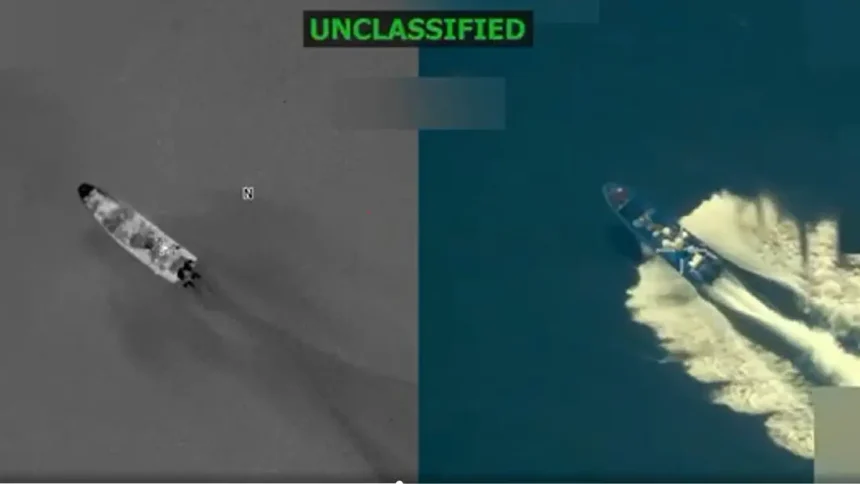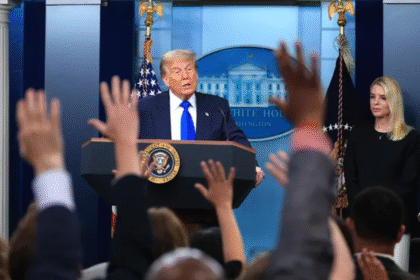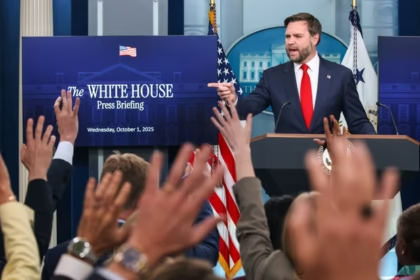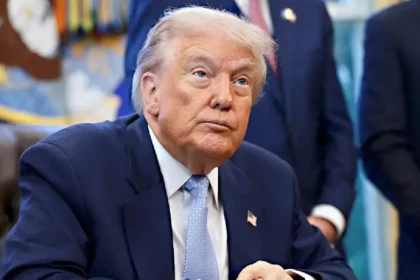Dozens killed in U.S. anti-drug campaign at sea under Trump’s direction
A surge of U.S. military strikes on vessels accused of drug trafficking has ignited fierce debate over legal justification, sovereign authority, and the human cost. The operations — ordered under President Donald Trump — mark a major escalation in Washington’s counter-narcotics strategy, but critics argue the campaign may be breaching international norms.
A Growing Maritime Campaign
Since early September, the U.S. military has carried out a series of lethal strikes on boats in international waters, targeting vessels alleged to be part of drug-smuggling networks. According to U.S. officials, these operations have resulted in numerous fatalities across at least 20 identified incidents, making it one of the largest maritime drug-combat campaigns in recent memory.
Defense Secretary Pete Hegseth, overseeing the operation, has publicly confirmed multiple strikes, often naming the targets as “narco-terrorists” or “designated terrorist organizations.” He has said that the vessels operated along known trafficking routes and carried narcotics, though he has not always provided public evidence to support each claim.
Trump’s Role and Justification
President Trump has taken personal ownership of the mission, framing it as a matter of national security and self-defense. He claims that the strikes are part of a broader effort to “protect the homeland” by cutting off supply lines into the United States. According to the Trump administration, cartels and drug networks pose a form of combatant threat not just criminal organizations — and therefore qualify as targets under a “non-international armed conflict” paradigm.
Trump’s framing raises profound legal questions. By treating traffickers as combatants, his administration argues it has the authority to use military force without congressional declarations of war. Critics argue this stretches the definition of armed conflict and opens the door to unchecked use of force in international waters.
Human Cost and Controversy
The death toll from these strikes has drawn condemnation from international observers. Human rights groups and UN officials have expressed deep concern over possible extrajudicial killings, especially in light of the lack of transparency around the evidence used to justify each strike.
Some reports suggest that among those killed may be civilians or individuals whose affiliation with drug trafficking is unclear. The U.S. has not uniformly released the identities of those aboard the targeted vessels, raising questions about accountability and due process.
Strategic Risks and Regional Fallout
The campaign is not just a counter-narcotics mission — it has geopolitical implications. Latin American leaders, particularly in Venezuela and Colombia, have raised alarms, warning that the strikes risk escalating into broader conflict. Colombia’s president, for example, has publicly accused the U.S. of breaching sovereignty by targeting boats that may be linked to Colombian nationals.
There is also concern among international lawyers: military action in international waters demands strict legal grounding, and some experts argue the Trump administration’s justification may fall short under international law.
Domestic Political Pushback
Within the U.S., lawmakers are also questioning the mission. Some Republicans and Democrats alike are demanding more information on how targets are chosen, what intelligence supports the strikes, and how the Trump administration determines combatant status. There have been calls for greater congressional oversight, especially given the administration’s characterization of cartels as terrorist organizations.
Critics warn that without proper checks and transparency, the mission could lead to civilian harm and erode norms around the use of force. The inherent risk of misidentification or collateral damage at sea is significant, they argue.
What Comes Next
-
Legal scrutiny: Courts, human rights bodies, and international institutions may press for investigations into the strikes and their legal basis.
-
Congressional review: Legislators could push to restrict or regulate the administration’s authority to carry out such military operations.
-
Operational transparency: There may be pressure on the Pentagon and White House to declassify more about the intelligence and process behind targeting.
-
Regional diplomacy: Diplomatic fallout could drive negotiations over how to jointly combat trafficking without military escalation.
Final Thoughts
President Donald Trump’s directive of lethal strikes on alleged drug-smuggling boats signals a hardline approach to counter-narcotics. But with dozens reportedly killed and international concern rising, the campaign treads a fine line between law enforcement and military engagement. The operation has exposed tensions between sovereignty, security and human rights making it not just a fight against drug trafficking, but a test of how far a nation can go in using force to defend itself in the name of national security.











